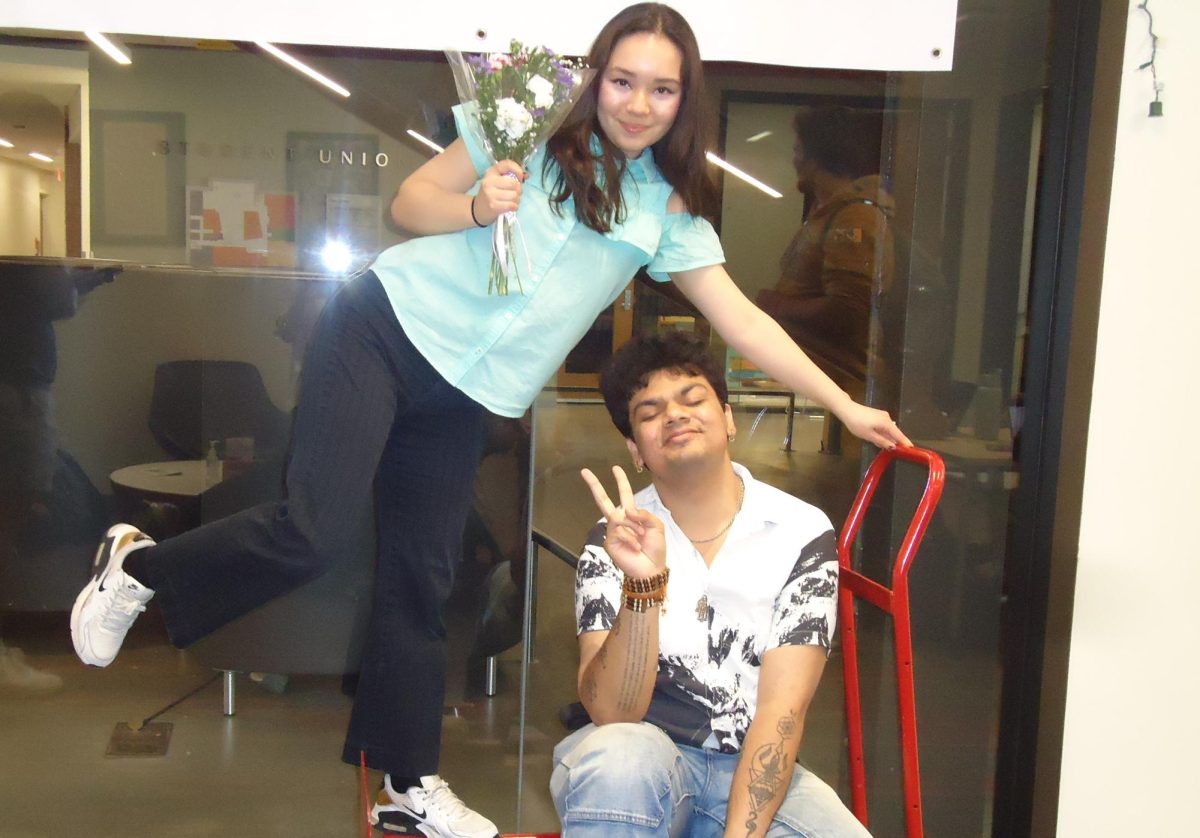 Toan Trinh/Collegian
Toan Trinh/CollegianJordan Veney, a former thrower for the University of Massachusetts track and field team, announced Wednesday that she plans on filing a lawsuit against the University on the grounds of discrimination if it does not reinstate her partial scholarship that she agreed to when she came to UMass in 2005.
Veney claims that UMass women’s track and field coach Julie LaFreniere discriminated against her through a series of actions that barred her from attaining the extra $5,000 for a full scholarship.
Deborah Hawkins-Mattar, the mother of African-American freshman sprinter Stephanie Mattar, and former sprinter Marissa Kay Callahan have come forward backing Veney’s claims about LaFreniere’s unfair treatment of minority individuals on the women’s team.
_____________________________________________
COLLEGIAN FORUM: What are your thoughts on Jordan Veney’s allegations? _____________________________________________
And two athletes from the women’s track team – long distance runners Erin O’Donnell and Eilis Kierans – are supporting LaFreniere and believe the allegations to be false.
“[The allegations] are completely the opposite of reality,” Kierans said. “[LaFreniere] is not a racist. She acknowledges people of all talents no matter what race or color you are.”
Repeated efforts to get in touch with LaFreniere and Mattar were unsuccessful.
Mattar has been receiving discriminatory treatment from LaFreniere, according to Hawkins-Mattar.
Hawkins-Mattar went on to discuss her daughter’s relationship with LaFreniere, which she described as rocky since Mattar came to UMass in late August.
“Stephanie is African-American, and Julie [LaFreniere] has this perception of us,” Hawkins-Mattar said. “When we speak what we feel, we intimidate. So now, Stephanie is a problem.”
O’Donnell, when asked about Mattar’s relationship with LaFreniere, replied, “Julie [LaFreniere] would not tolerate laziness or people not showing up to practice. That would be the only thing she ever got mad about.”
“I’m really angered and shocked that this is happening,” O’Donnell added. “[LaFreniere] has helped me in so many ways and went out of her way to help me when I transferred here as a sophomore. She goes out of her way to help people.”
The primary conflict between Mattar and LaFreniere, according to Hawkins-Mattar, originated with the reduction of Mattar’s $20,000 scholarship after an injury sidelined her in the fall of 2006.
LaFreniere, according to Hawkins-Mattar, cut her daughter’s scholarship in half after Mattar’s legs began to bother her, and believes LaFreniere was reckless in her handling of Mattar’s scholarship money.
According to Hawkins-Mattar, LaFreniere said that the reason that Mattar’s scholarship was being reduced to $10,000 was that “Stephanie didn’t have the heart and Stephanie didn’t do what she should have done.”
Hawkins-Mattar wasn’t sure if LaFreniere was alluding to on-the-field performance or behavioral issues. According to Hawkins-Mattar, LaFreniere also told Mattar that if she performed well enough during the next semester, she would get the $20,000 scholarship back. Veney claimed that LaFreniere promised to reinstate her scholarship as well, and Hawkins-Mattar believes that her daughter’s experience and Veney’s experience are very similar, and represent a trend of racial discrimination from LaFreniere.
“At this point with the scholarship, I don’t even trust those people because I feel they’re racist,” Hawkins-Mattar said. “I feel that there is a clique that Julie [LaFreniere] controls.”
Kierans and O’Donnell, however, believe that LaFreniere is not a racist and they never seen LaFreniere discriminate against anyone on the team.
“Julie [LaFreniere] is the most non-judgmental person you will ever meet,” Kierans said. “Jordan [Veney] used racism as a weapon against her.”
Kierans commented further on Veney’s situation.
“You come to practice with a good attitude because it’s part of being a team,” Kierans said. “If you don’t, you’re going to be dismissed.”
Kierans, however, admitted to not seeing or interacting with Veney during Veney’s time on the team.
Callahan, an Asian-American UMass graduate who competed for the track team from 2001 to 2005 as a sprinter, claims that she too was mistreated by LaFreniere when she dealt with an injury during her senior year.
Callahan also believes that minority athletes are treated noticeably worse than non-minority athletes on the women’s track team.
“During my four or five years that I was there, I knew a lot of black athletes who walked on and performed really well and they ended up leaving the team because of Julie [LaFreniere],” Callahan said. “I know she tends to give all of the black athletes a harder time.”
LaFreniere took away Callahan’s $1,000 partial scholarship after her junior year, because, according to Callahan, she felt that Callahan was not in shape and she hadn’t competed at all.
However, Callahan claims that LaFreniere told her to take time off after the first semester of her junior year in 2004, then took her scholarship away because she had taken the time off that LaFreniere instructed her to.
“She kept me out of competition and then told me to take time off,” Callahan said. “And when I came back she took my scholarship away because I hadn’t competed and I took time off.
“When she took the scholarship away, she could have given at least some chance to redeem myself, but there was none,” Callahan added.
While Callahan believes that LaFreniere treated the African-American athletes noticeably worse than the other athletes, she also feels that LaFreniere feels a need to control the athletes on her team.
“[LaFreniere] likes to control everyone that she can,” Callahan said. “And people she can’t control she goes out of her way to find a way to control them. And usually scholarships are the best way to control people.”
Rob Greenfield can be reached at [email protected].






